تعد الأضواء الشمسية خيارًا شائعًا للإضاءة الخارجية نظرًا لكفاءتها في استخدام الطاقة وفوائدها البيئية. ومع ذلك، هناك سؤال شائع يطرح نفسه وهو: هل تعمل الأضواء الشمسية في حالة الطقس الغائم؟ في هذه المدونة، سوف نستكشف كيفية أداء الأضواء الشمسية في الأيام الغائمة، ونقدم نصائح حول كيفية تعظيم فعاليتها، حتى عندما لا تكون الشمس مشرقة.
كيف تعمل الأضواء الشمسية
قبل الخوض في كيفية أداء الأضواء الشمسية في الظروف الغائمة، من المهم أن نفهم كيفية عملها. تستخدم الأضواء الشمسية الألواح الشمسية لتحويل ضوء الشمس إلى كهرباء. يتم تخزين الطاقة الشمسية في بطارية، والتي تعمل على تشغيل الضوء عند غروب الشمس. في الأيام المشمسة، تمتص الألواح الشمسية المزيد من ضوء الشمس، مما يسمح للبطارية بالشحن الكامل. في الليل، تعمل البطارية على تشغيل الضوء، مما يوفر الإضاءة دون الاعتماد على الشبكة الكهربائية.
الأضواء الشمسية والطقس الغائم: ماذا يحدث؟
تؤثر الأيام الملبدة بالغيوم والطقس الغائم على أداء الأضواء الشمسية، لكنها لا تجعلها غير فعالة تمامًا. وإليك السبب:
1. الطاقة الشمسية لا تزال تصل إلى الألواح الشمسية في الأيام الغائمة
يمكن أن يؤدي الغطاء السحابي إلى تقليل كمية ضوء الشمس التي تصل إلى سطح الأرض، ولكن لا تزال الألواح الشمسية قادرة على امتصاص أشعة الشمس المنتشرة . ورغم أن كفاءة الألواح الشمسية تنخفض في الأيام الملبدة بالغيوم، فإنها لا تزال قادرة على توليد الطاقة. وستكون كمية الطاقة المجمعة أقل من تلك التي يتم جمعها في الأيام المشمسة، ولكنها عادة ما تكون كافية لشحن البطارية للحفاظ على عمل ضوء الشمس.
2. تخزين البطارية والكفاءة
إن مفتاح أداء الضوء الشمسي أثناء الطقس الغائم يكمن في سعة البطارية . تم تصميم المصابيح الشمسية لتخزين الطاقة لعدة ساعات من الإضاءة بعد حلول الظلام. إذا تم شحن البطارية بالكامل في يوم مشمس، فيمكنها عادةً توفير الطاقة للضوء لعدة ساعات، حتى في الظروف الغائمة. تتمتع البطاريات عالية الجودة ، مثل بطاريات الليثيوم أيون، بسعة أفضل ويمكنها تخزين المزيد من الطاقة، مما يسمح بالعمل لفترة أطول في الأيام الغائمة أو الملبدة بالغيوم.
3. تأثير الغطاء السحابي على كفاءة الألواح الشمسية
تحجب السحب جزءًا كبيرًا من ضوء الشمس المباشر، ولكن ضوء الشمس المنتشر لا تزال الطاقة الشمسية تصل إلى الألواح الشمسية. وهذا يعني أنه على الرغم من انخفاض توليد الطاقة الشمسية، إلا أنها لا تتوقف تمامًا. الألواح الشمسية أحادية البلورة تعتبر أكثر كفاءة في امتصاص الضوء مقارنة بالألواح متعددة البلورات، حتى في ظروف الإضاءة المنخفضة. ونتيجة لذلك، فإن الأضواء الشمسية ذات الألواح أحادية البلورة يمكن أن تعمل بشكل أفضل خلال الأيام الملبدة بالغيوم، مما يجعلها خيارًا رائعًا للمواقع التي تشهد طقسًا غائمًا بشكل متكرر.

العوامل المؤثرة على أداء الضوء الشمسي في الأيام الملبدة بالغيوم
رغم أن الأضواء الشمسية لا تزال قادرة على العمل في ظل الغيوم، إلا أن أداءها يعتمد على عدة عوامل. وتشمل هذه العوامل جودة الألواح الشمسية، وسعة البطارية، وكثافة الغطاء السحابي.
1. جودة الألواح الشمسية
إن نوع وجودة اللوحة الشمسية المستخدمة في الإضاءة الشمسية سوف يؤثر بشكل كبير على أدائها في الأيام الغائمة. الألواح أحادية البلورة هي الأكثر كفاءة في تحويل ضوء الشمس إلى طاقة ويمكن أن تعمل بشكل جيد في ظروف الإضاءة المنخفضة. الألواح متعددة البلورات ، على الرغم من فعاليتها، تكون أقل كفاءة قليلاً، وبالتالي، قد لا تشحن بشكل جيد أثناء الطقس الغائم.
2. سعة البطارية
حجم البطارية مهم بقدر أهمية اللوحة الشمسية نفسها. ضوء شمسي مزود بـ بطارية أكبر يمكن للبطاريات ذات السعة العالية تخزين المزيد من الطاقة خلال النهار، مما يضمن استمرار عملها في الأيام الملبدة بالغيوم أو القصيرة. توفر البطاريات ذات السعة العالية فترات تشغيل أطول، وهو أمر مفيد بشكل خاص أثناء الطقس الغائم عندما يكون الشحن بالطاقة الشمسية أبطأ.
3. طول وكثافة الغطاء السحابي
إذا كان الطقس الغائم قصير الأمد، فإن الأضواء الشمسية ستظل تعمل بشكل فعال عادةً، حيث يكون لدى البطارية الوقت الكافي للشحن خلال الفترات المشمسة. ومع ذلك، فترات طويلة من الطقس الغائم قد يؤدي ذلك إلى استنزاف البطارية، خاصة إذا لم يتم شحنها بالكامل أثناء الأيام المشمسة. في هذه الحالة، قد يظل الضوء يعمل ولكن بدرجة سطوع أقل أو لفترات زمنية أقصر.
تحسين أداء الإضاءة الشمسية في الأيام الملبدة بالغيوم
لضمان أداء أضواء الطاقة الشمسية لديك بشكل جيد حتى في الأيام الملبدة بالغيوم، ضع في اعتبارك النصائح التالية:
1. اختر أضواء الطاقة الشمسية عالية الجودة
عند التسوق لشراء الأضواء الشمسية، ابحث عن الموديلات ذات الألواح الشمسية عالية الكفاءة و بطاريات ذات سعة كبيرة . مصابيح تعمل بالطاقة الشمسية الألواح أحادية البلورة تميل المصابيح ذات الخلايا البلورية المتعددة إلى الأداء بشكل أفضل في الطقس الغائم مقارنة بالنماذج متعددة البلورات. بالإضافة إلى ذلك، تأكد من أن البطارية مصممة لتدوم لفترة أطول وتوفر إضاءة ثابتة.
2. قم بتثبيت الأضواء الشمسية في المواقع المثالية
للحصول على أفضل أداء، ضع أضواءك الشمسية في أماكن احصل على ضوء الشمس المباشر لأطول فترة ممكنة . حتى في الأيام الملبدة بالغيوم، كلما زاد تعرض الألواح الشمسية لأي ضوء شمس متاح، زادت سعة الشحن. حاول تجنب وضع الأضواء الشمسية تحت مظلات الأشجار أو بالقرب من المباني الكبيرة التي قد تحجب ضوء الشمس.

3. حافظ على نظافة الألواح الشمسية
يمكن أن يؤدي الغبار والأوساخ والحطام إلى منع أشعة الشمس من الوصول إلى اللوحة الشمسية، مما يقلل من كفاءة شحنها. نظف الألواح الشمسية بانتظام للتأكد من أنها قادرة على امتصاص أكبر قدر ممكن من أشعة الشمس، حتى عندما لا تكون الشمس مرئية بالكامل. يمكن أن تحدث اللوحة الشمسية النظيفة فرقًا ملحوظًا في الأداء، خاصة أثناء الظروف الملبدة بالغيوم.
ما هي المدة التي تدومها الأضواء الشمسية في الأيام الغائمة؟
تعتمد مدة بقاء المصباح الشمسي أثناء الطقس الغائم على شحن البطارية وكثافة الغطاء السحابي. إذا تم شحن المصباح الشمسي بالكامل أثناء الأيام المشمسة، فيمكن أن يستمر عادةً لعدة ساعات أثناء الليالي الملبدة بالغيوم. ومع ذلك، إذا استمر الطقس الغائم لعدة أيام، فقد لا تتمكن البطارية من الشحن بالكامل، وقد يعمل الضوء فقط لفترات أقصر أو بسطوع أقل.
خاتمة
للإجابة على السؤال: نعم، تعمل الأضواء الشمسية عندما يكون الجو غائمًا ، ولكن أداءها سيكون أقل كفاءة من الأيام المشمسة. عوامل مثل جودة اللوحة الشمسية سعة البطارية ، و مدة الغطاء السحابي تلعب الأضواء الشمسية دورًا مهمًا في مدى جودة أداء الأضواء الشمسية في الأيام الملبدة بالغيوم. من خلال اختيار الأضواء الشمسية عالية الجودة، ووضعها في مواقع مثالية، والحفاظ على نظافة الألواح، يمكنك ضمان استمرار أداء الأضواء الشمسية الخاصة بك بشكل جيد حتى عندما لا تكون الشمس مشرقة.



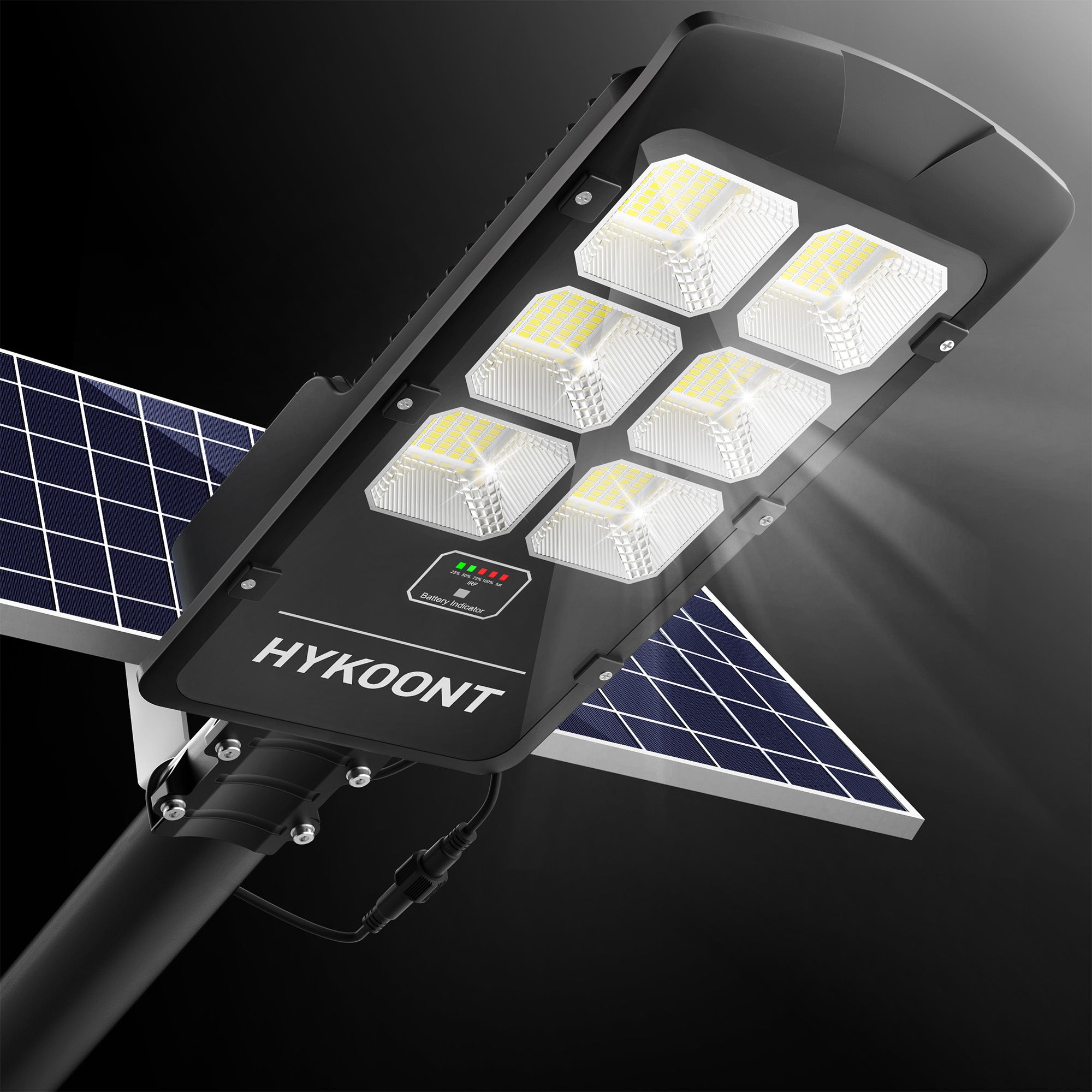
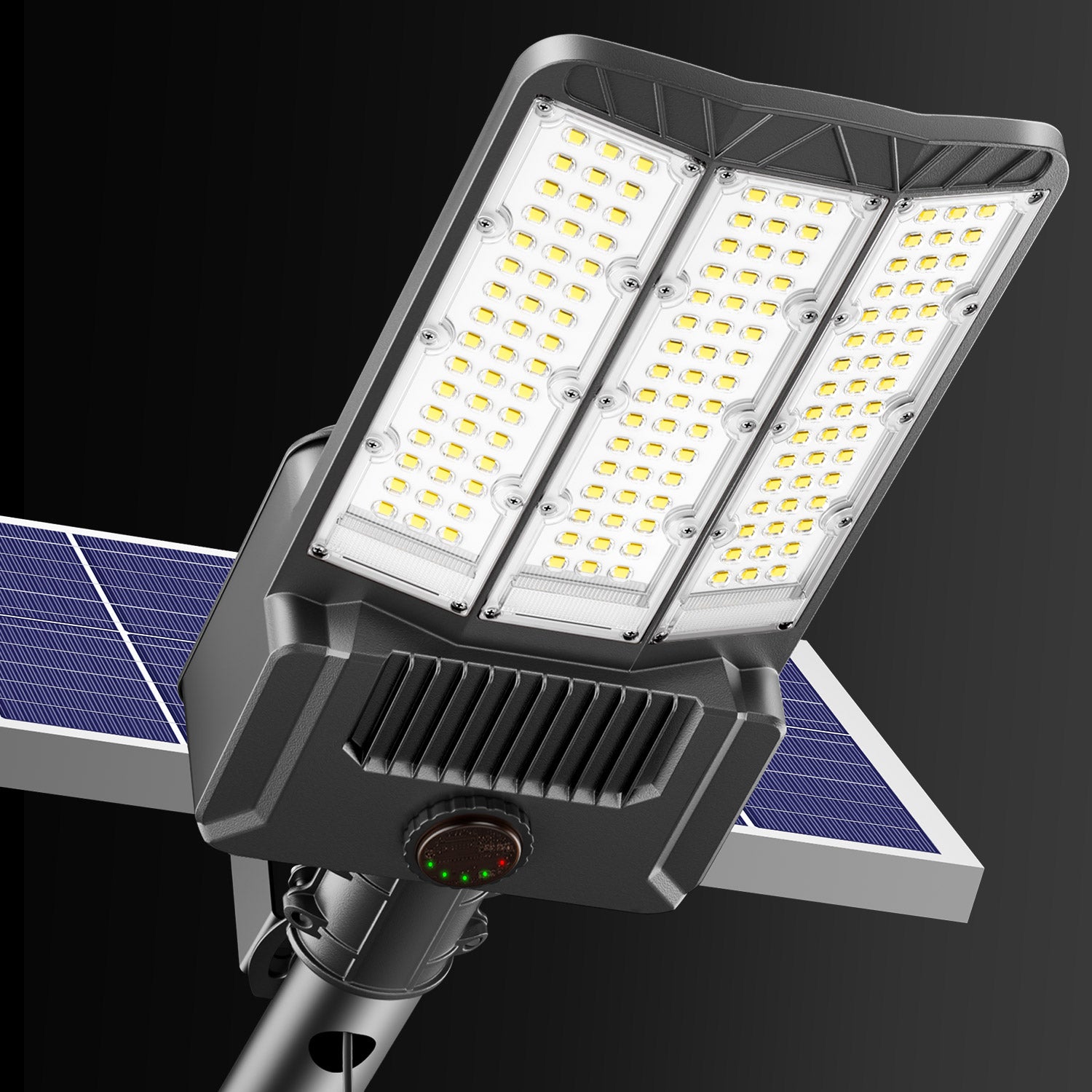

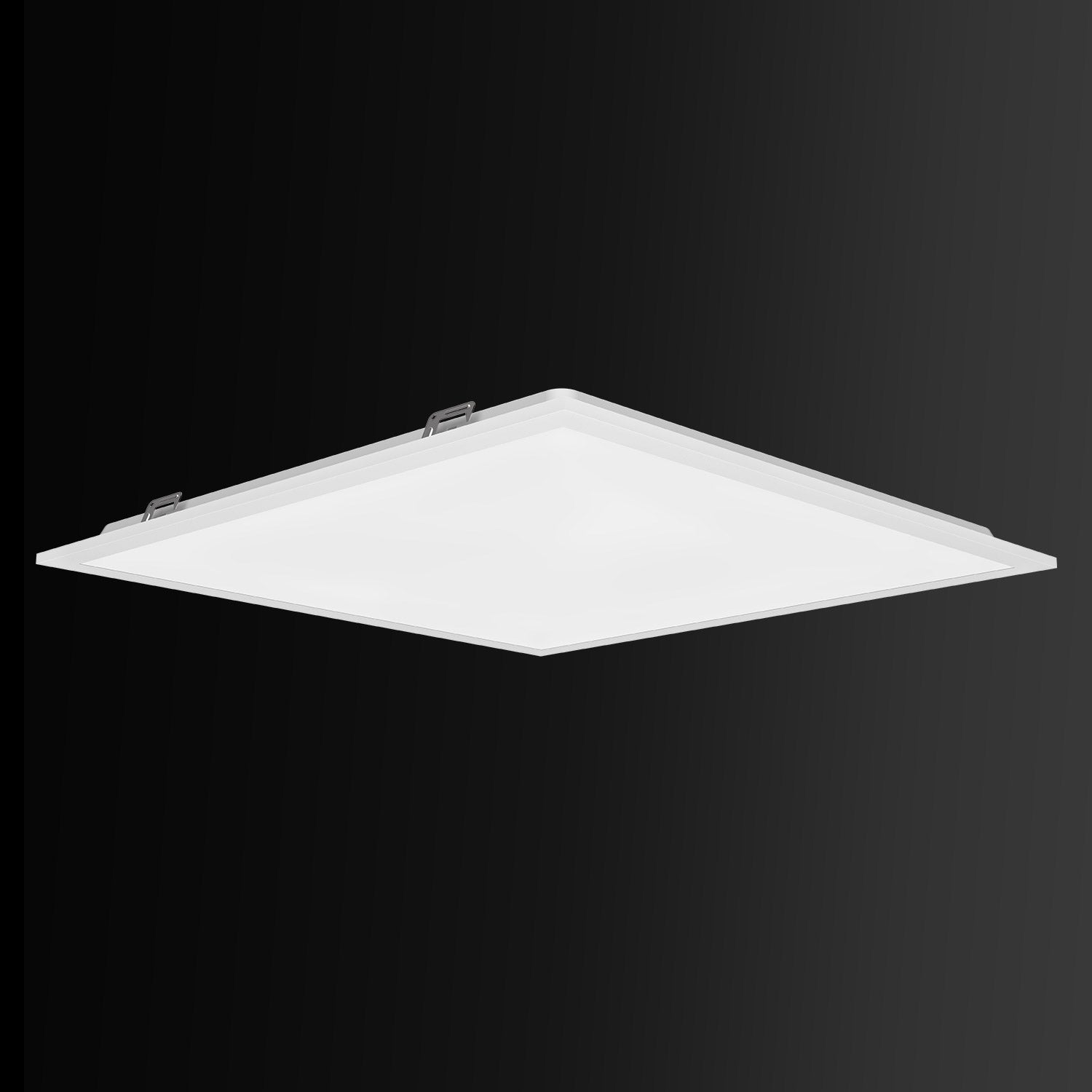
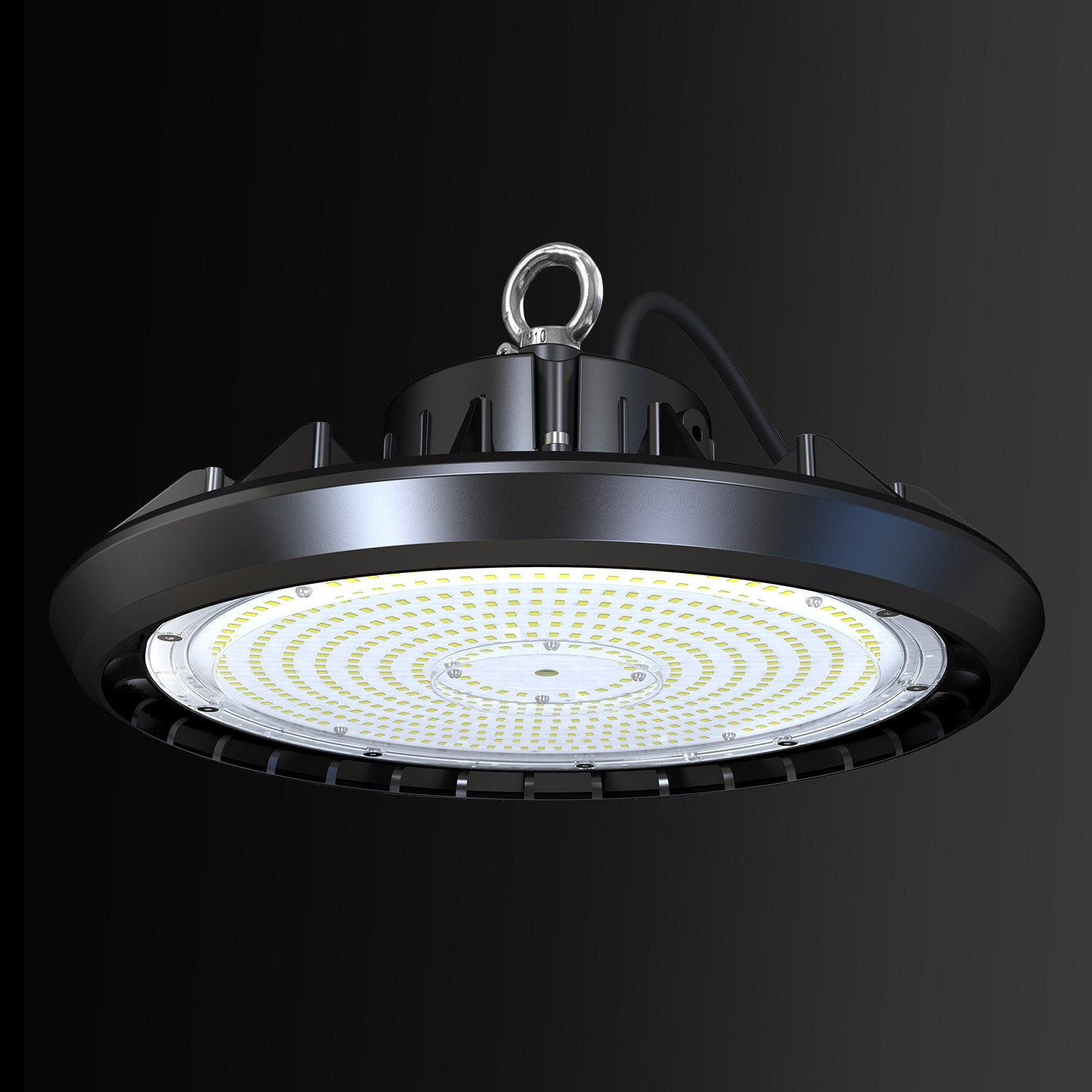
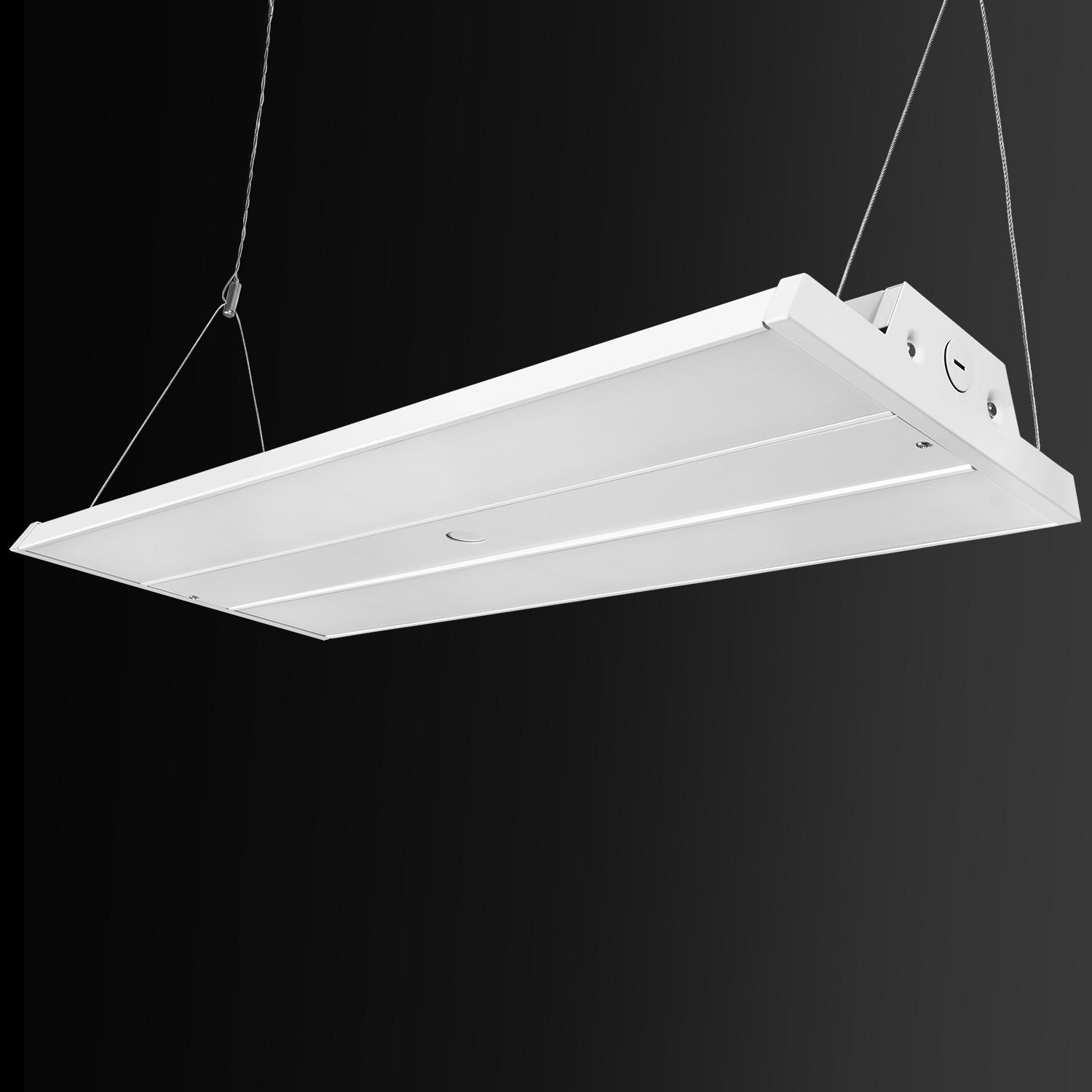






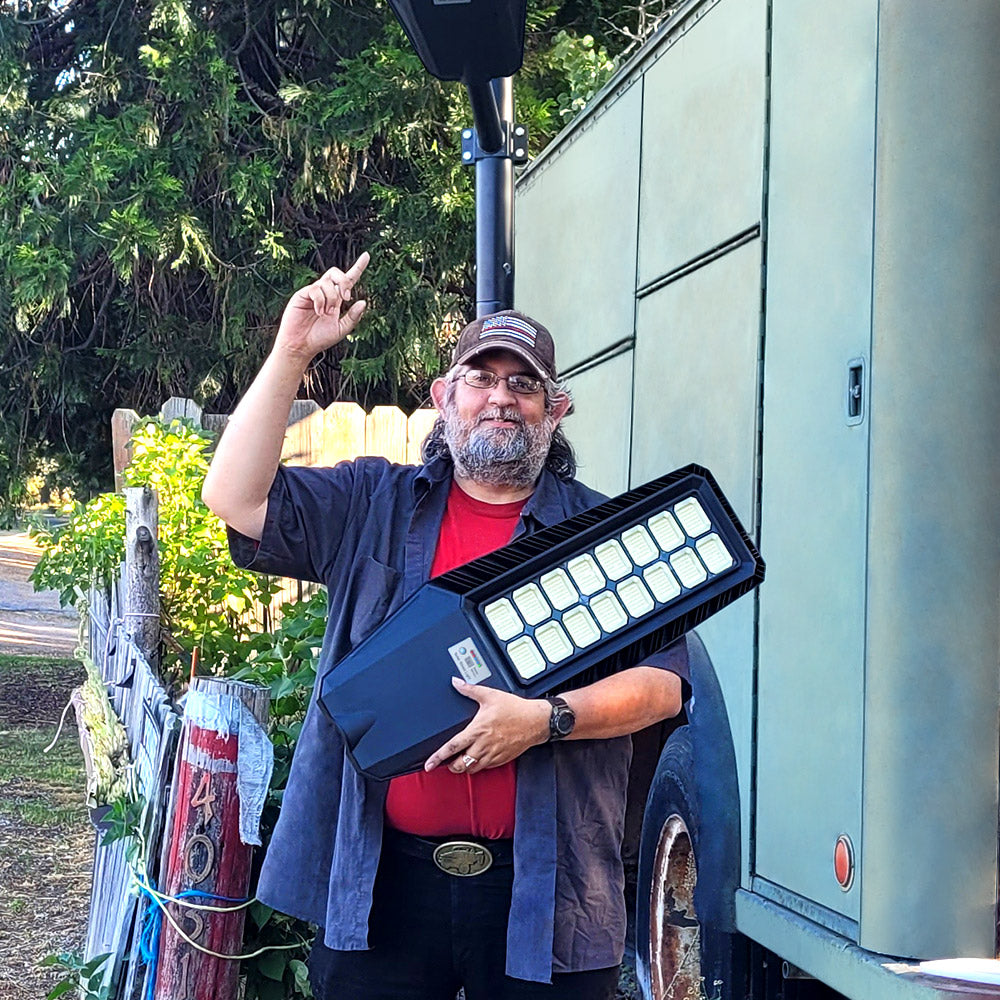
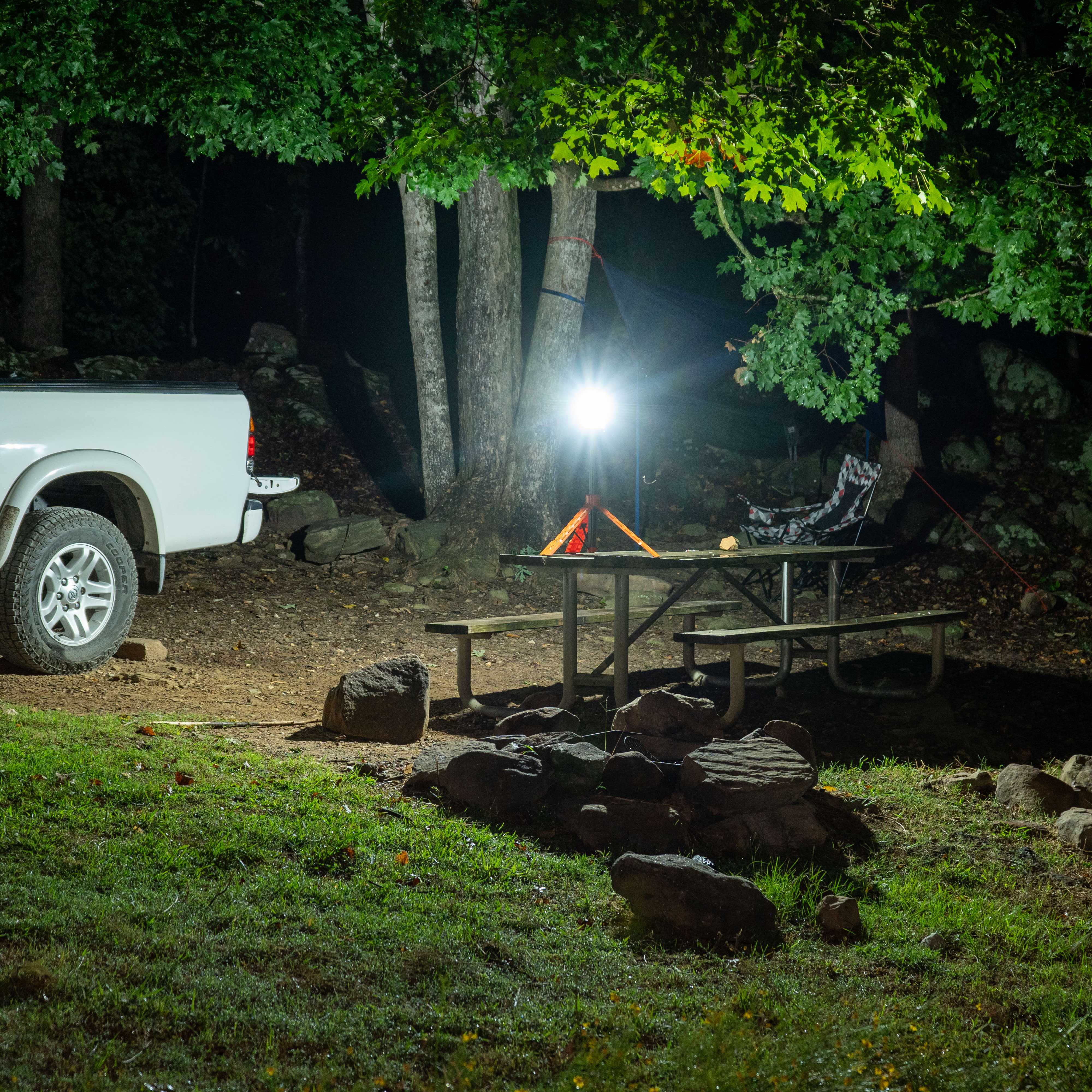
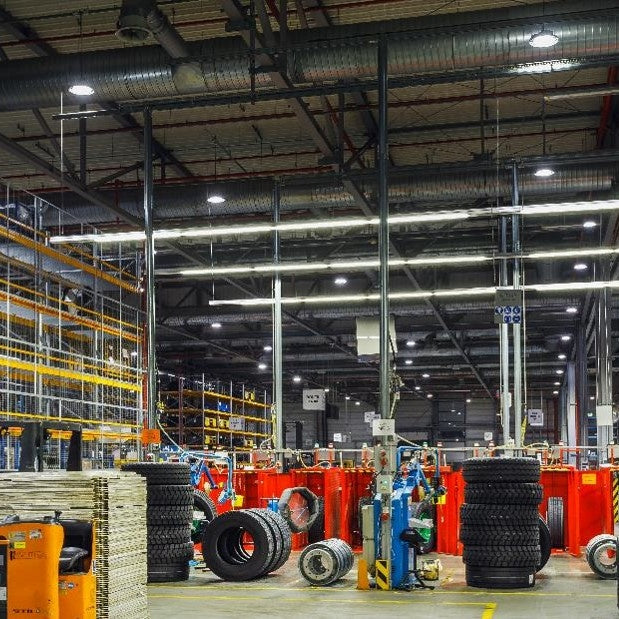
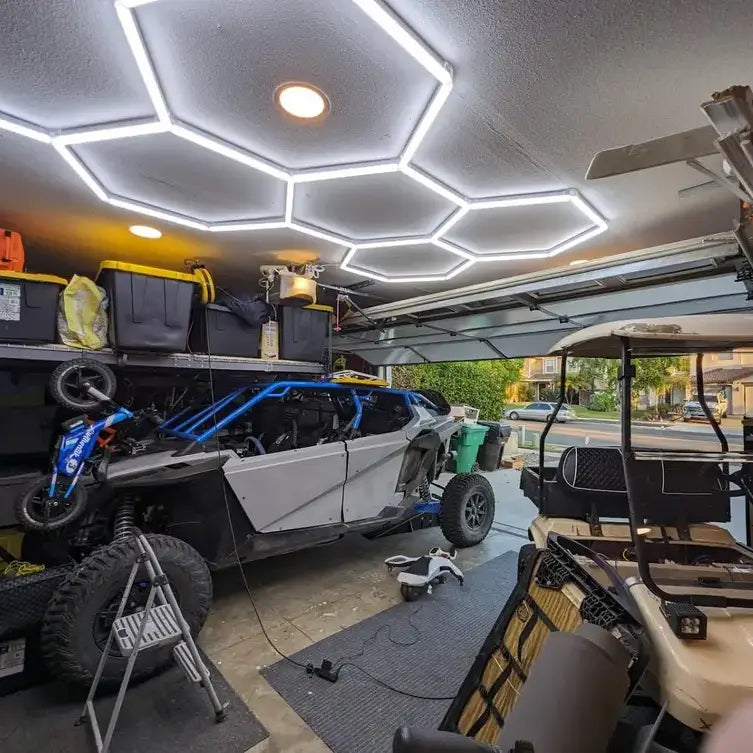
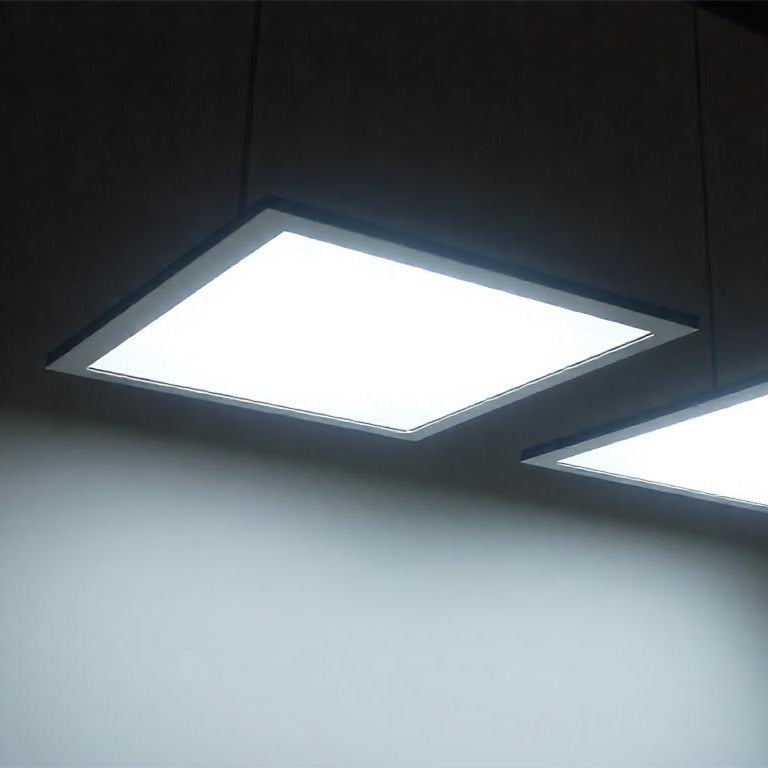
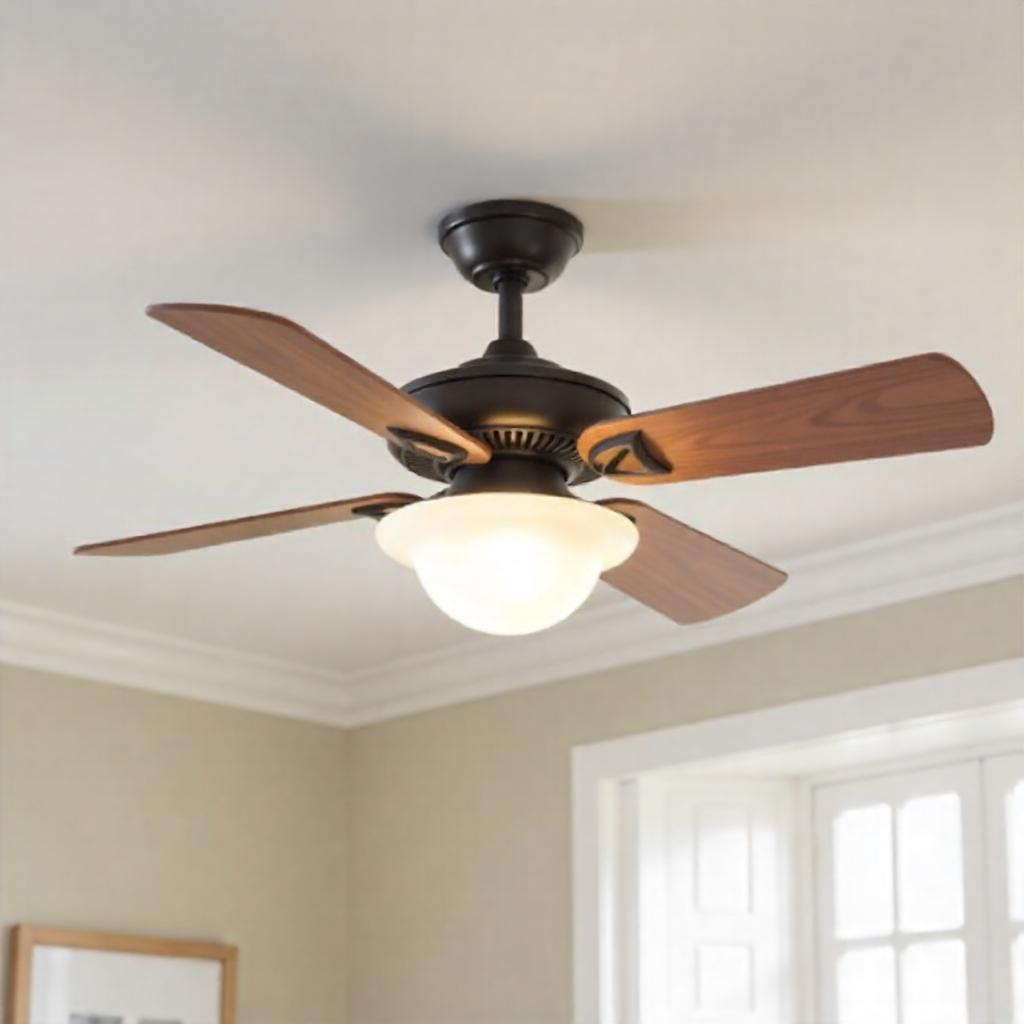
اترك تعليقًا
This site is protected by hCaptcha and the hCaptcha Privacy Policy and Terms of Service apply.